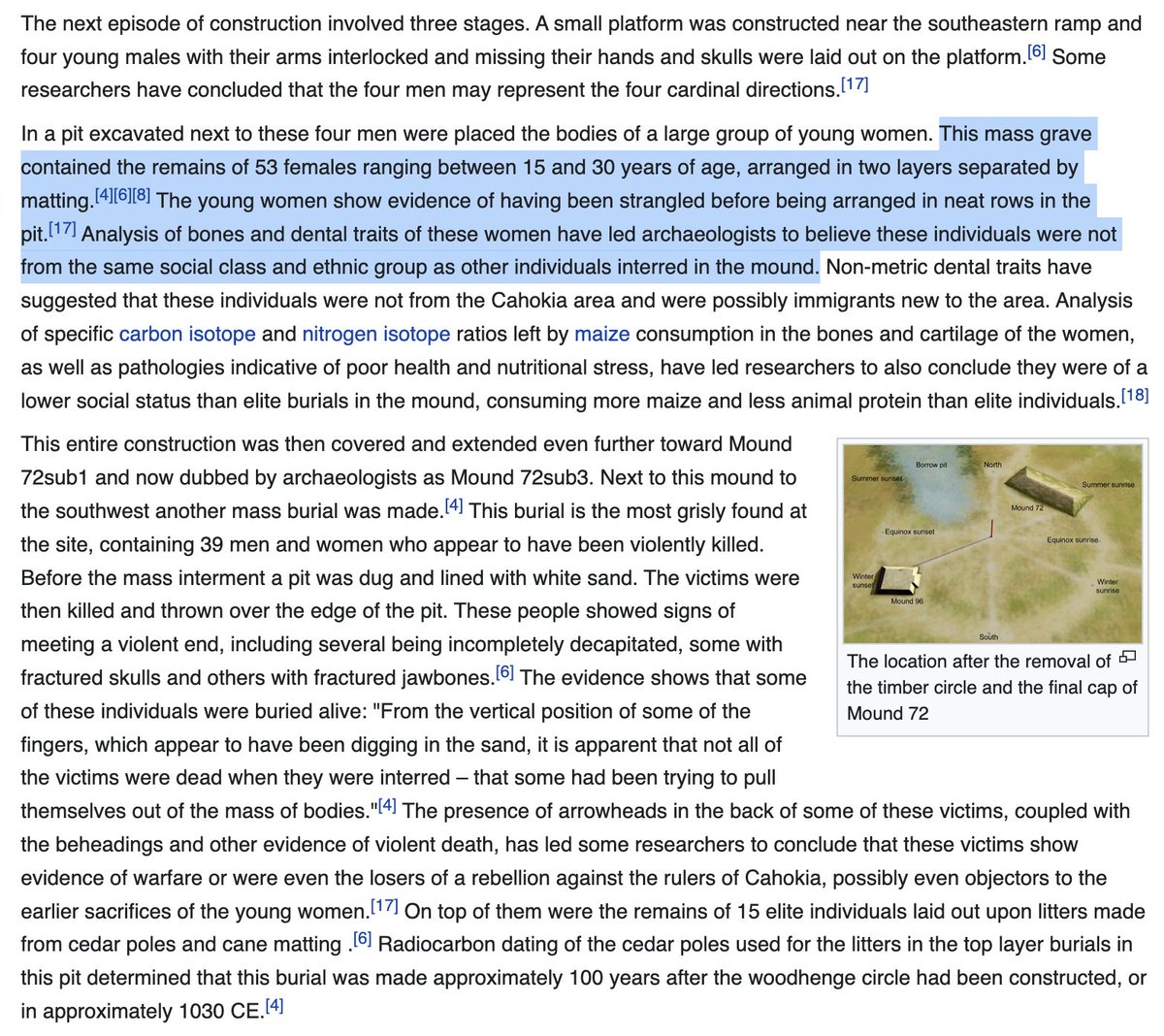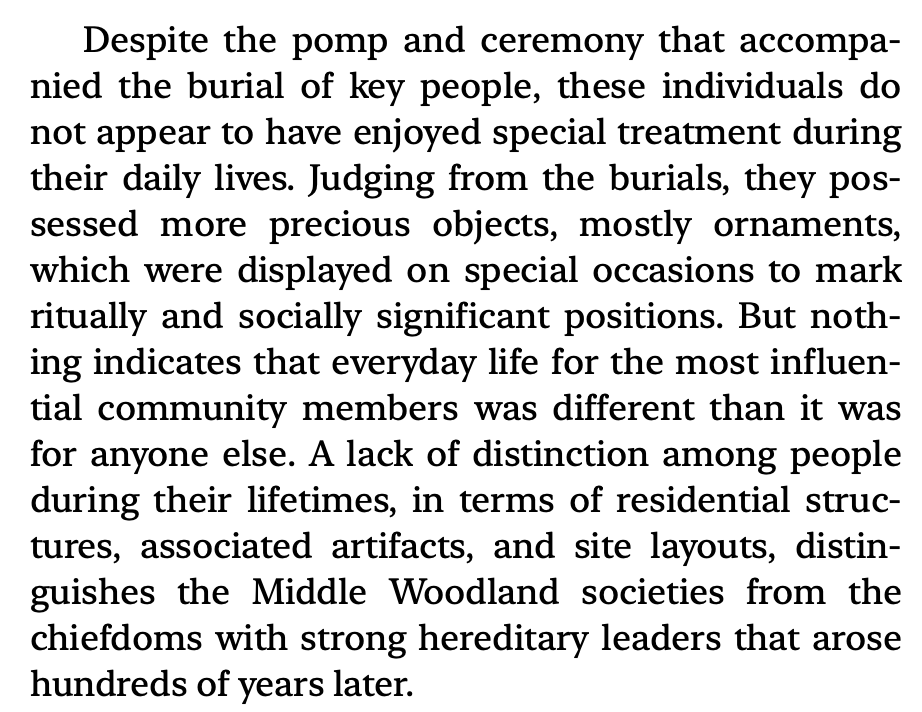Pre-Columbian Mississippians built titanic mounds, demonstrating labor mobilization at least on par with early European feudalism. The academic story is "These guys lived in loose chiefdoms much like those Europeans encountered 500 years later, idk don't worry about it." 

At the Cahokia mounds there were mass human sacrifices of apparent war captives at a scale even the Aztecs would respect. Am I going crazy or does this look like an advanced state with an imperialist war machine launching expeditions to distant lands? 

Scholars will jump through some pretty wild hoops to downplay the sophistication and stratification you’ll get from a plain reading of the archaeological record of pre-contact Mississippians. 

• • •
Missing some Tweet in this thread? You can try to
force a refresh




